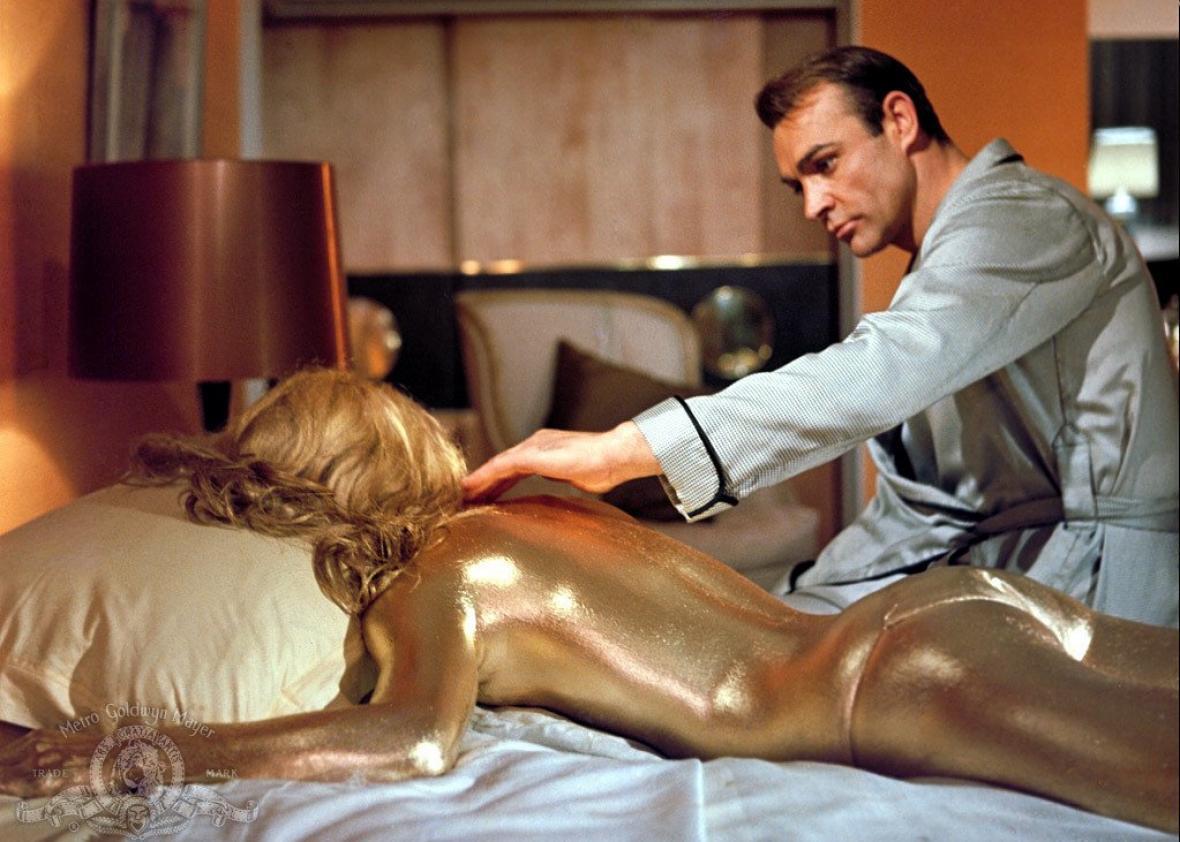Devoted James Bond fans, like any dedicated and slightly crazed group of addicts, disagree on everything from Pierce Brosnan to the merits of Octopussy. But what is largely accepted—except in the case of a few confused On Her Majesty’s Secret Service cultists—is that Goldfinger, the third James Bond film, is the best movie in the series. On Wednesday, Guy Hamilton, the director of four James Bond films including Goldfinger, died at the age of 93.
It was fitting that his death occurred on the very Bondian Mediterranean island of Majorca. Although Hamilton had many earlier credits to his name, such as serving as an assistant director on The African Queen, he never really took off as a director until Goldfinger, which was released in 1964. (His biggest success had been 1954’s An Inspector Calls.) But his work on Goldfinger was superb; it remains as undated and spectacular as ever. After the first two excellent entries in the series—Dr. No (which Hamilton declined to direct) and From Russia With Love—Hamilton helped set the series on a slightly different course. The earlier films had been more faithful adaptations of Ian Fleming’s novels, while Goldfinger was something distinctly new. The humor was ratcheted up a notch, the playfulness was increased, and Sean Connery was able to relax a bit more, and give his finest performance as Bond.
Hamilton’s directorial achievement was thus to create an aura that most of the good Bond films would come close to replicating: a mixture of seriousness and fun amid exotic locations and beautiful people. Hamilton was never a great director of action, which is odd in light of his eventual reputation as a director who only knew how to direct action, but Goldfinger easily has 10 superbly paced and unforgettable scenes, from a fixed card game, to a high-stakes round of golf, to a very funny dinner where the discussion is gold.
And yet: Hamilton may have helped set Bond on a new course, but that course was not always fruitful. The playful atmosphere of Goldfinger gave way to the over-the-top humor of later Bond entries, three of which Hamilton himself directed in succession (Diamonds are Forever, Live and Let Die, The Man With the Golden Gun). These rank as three of the worst films from the Connery and Roger Moore eras, and in none of them was Hamilton able to balance drama and humor well. It probably isn’t a coincidence that while he eventually decided not to direct the next film in the series, The Spy Who Loved Me, the person who did (Lewis Gilbert) made the best 007 movie since Goldfinger.* Hamilton helped set the tone, but he couldn’t carry it through.
The rest of Hamilton’s career consisted largely of forgettable actions movies. (He left Spy so he could direct Force 10 From Navarone, which I encourage precisely nobody to watch.) His career may have, in some sense, been a disappointment, but having directed the finest entry in arguably the longest-running and most popular film franchise in history is quite an achievement. It would be too much to say that without Hamilton the series would not have survived. But Hamilton helped create the template, and the series has been trying to live up to Goldfinger for over 50 years. It still hasn’t.
*Correction, April 22, 2016: This post originally misstated who directed The Spy Who Loved Me. It was Lewis Gilbert, not Terence Young.
